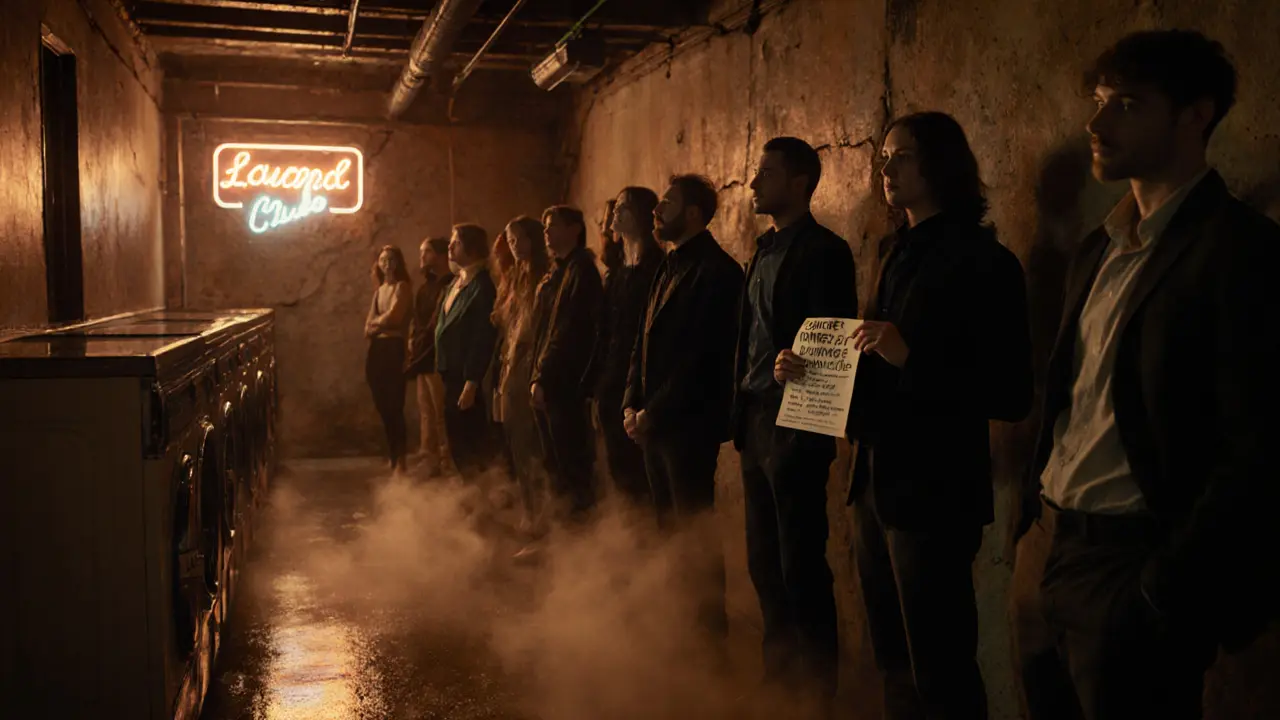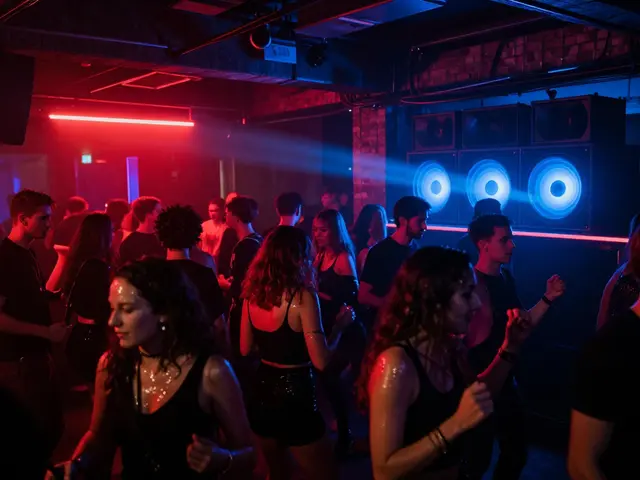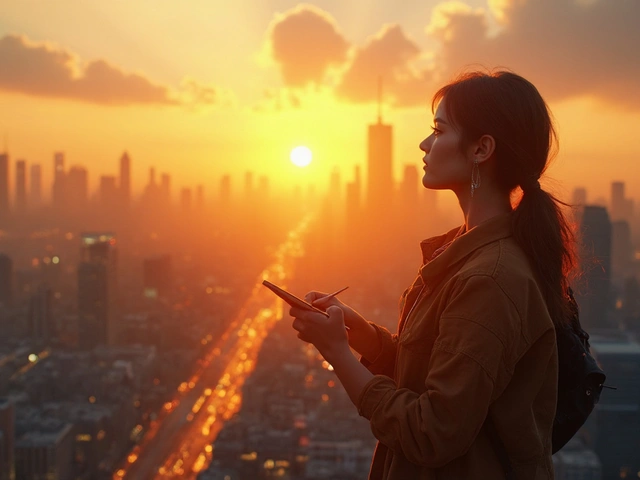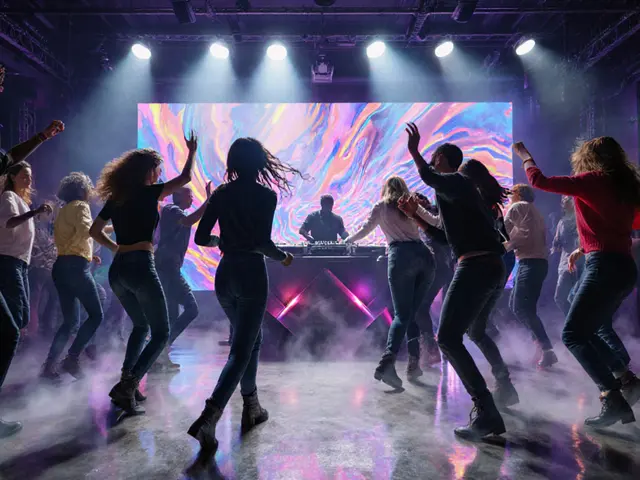You’ve heard the stories. Friends back home brag about dancing until sunrise in Munich. You’ve seen the Instagram reels-neon lights, crowds chanting, DJs dropping beats that shake your chest. But when you actually show up, you realize most tourists end up in the same three overcrowded spots, pay €15 for a watery beer, and leave before midnight. That’s not partying like a pro. That’s just checking a box.
Here’s the truth: Munich’s club scene isn’t just about Oktoberfest tents and beer halls. It’s a living, breathing ecosystem of underground basements, rooftop lounges, techno temples, and jazz-filled lounges that don’t even have signs on the door. And if you know where to look, you can have the kind of night that sticks with you for years.
What Makes Munich’s Club Scene Different?
Munich doesn’t just throw parties. It builds experiences. Unlike Berlin, where clubs are industrial and raw, or Hamburg, where the vibe is more international and polished, Munich’s nightlife is a mix of old-world charm and cutting-edge energy. You’ll find 1920s-style speakeasies tucked behind bookshelves, and next door, a warehouse where DJs spin until 6 a.m. with lasers cutting through fog like knives.
The city’s clubs aren’t just places to drink-they’re cultural hubs. Local artists paint murals on the walls. Musicians from the Munich Philharmonic drop in for surprise sets. Even the bouncers know your name by the third visit. That’s not luck. That’s the result of a scene that values authenticity over hype.
Why You Should Skip the Tourist Clubs
Let’s be real: Munich clubs like P1 or the English Garden beer gardens are packed with tourists, overpriced drinks, and zero soul. You’ll wait 45 minutes just to get in, pay €12 for a half-liter of lager, and hear the same 10 EDM tracks on loop. It’s not wrong-it’s just not the real thing.
Real Munich nightlife happens after 1 a.m. That’s when the locals head to places like Backstage in the Schwabing district, where the DJ plays obscure 90s techno and the crowd is a mix of artists, engineers, and students who’ve been coming for a decade. Or Prinzregententheater, a former theater turned underground club where the sound system is so good you feel the bass in your teeth.
There’s a reason the best clubs don’t advertise on Instagram. They don’t need to. Word spreads fast among people who actually know how to party.
Types of Clubs in Munich: Find Your Vibe
Munich doesn’t have one nightlife scene-it has six. Here’s what you’ll actually find:
- Techno & Electronic: Backstage, Kantine, and Werkstatt are the holy trinity. Expect dark rooms, minimal lighting, and sets that last 5+ hours. No VIP sections. No bottle service. Just pure sound.
- Indie & Alternative: Prinzregententheater and 1920 blend live bands with DJs. Think post-punk, synthwave, and experimental noise. Dress code? Whatever you want. As long as it’s not a tourist T-shirt.
- Lounge & Jazz: Blue Note Munich is the real deal. No flashing lights, no loud music-just world-class jazz musicians playing in a velvet-lined room. Perfect if you want to sip a good whiskey and talk without yelling.
- Gay & Queer Spaces: Bar 25 and Die Bucht are legendary. The crowd is diverse, the music is bold, and the energy is electric. This isn’t a themed night-it’s a way of life.
- Underground & Secret Spots: Some clubs don’t have websites. You find them through word of mouth, WhatsApp groups, or a cryptic flyer on a lamppost. One popular spot? A basement under a laundromat in Haidhausen. The password changes every week.
- Outdoor & Rooftop: In summer, Werkstatt turns into an open-air club with fire pits and hammocks. Roof Garden on the 10th floor of a downtown hotel gives you skyline views and craft cocktails.
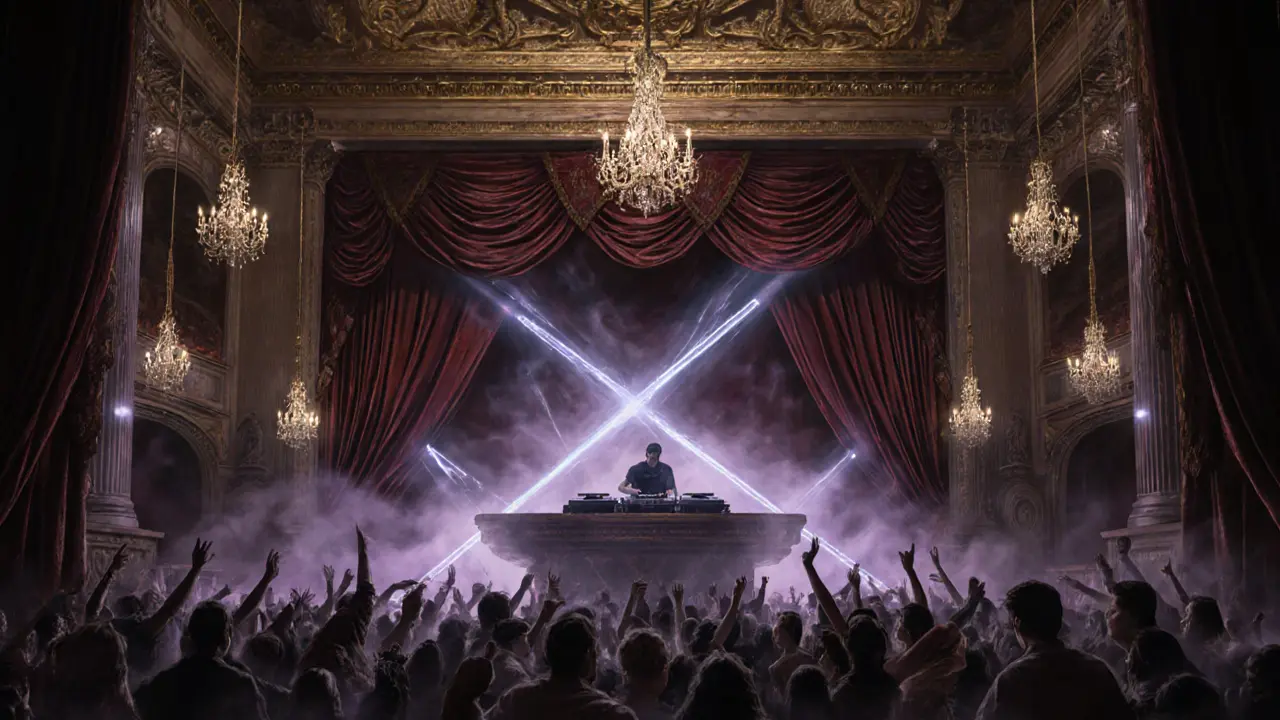
How to Find the Real Clubs (Without Getting Lost)
You won’t find these spots on Google Maps. Here’s how locals do it:
- Follow local DJs on Instagram. Not the big names-look for people who post behind-the-scenes clips of soundchecks or late-night coffee runs. Their stories often drop clues.
- Check Munich Nights (muenchner-nächte.de). It’s not flashy, but it lists real events with exact times, dress codes, and entry fees.
- Ask your Airbnb host. Not the automated message-actually talk to them. Most have been in the city for years and know where the good stuff is.
- Visit during the week. Friday and Saturday are packed. Tuesday and Wednesday? That’s when the real parties start.
- Download the app Eventbrite Munich. It’s not just for concerts-it’s where underground promoters post secret gigs.
And here’s a pro tip: Don’t go alone. Bring one or two people you trust. Munich clubs are safe, but the hidden ones can be confusing. A buddy helps you find the right door-and keeps you from accidentally walking into a karaoke bar.
What to Expect When You Get In
Forget the bouncers checking your ID five times. In Munich, they’ll look at you, nod, and say, “You’re not from around here, are you?” That’s not rude-it’s a greeting.
Once you’re inside:
- There’s no cover charge before 11 p.m. After that? Usually €5-€10. Cash only at most places.
- Drinks are cheap. A beer costs €4-€6. A cocktail? €8-€10. No one charges €15 for a mojito here.
- Dress code? Smart casual. No flip-flops. No jerseys. No baseball caps. If you look like you just left a tour bus, you’ll get side-eyed.
- Don’t expect to dance on tables. Munich clubs are about the music, not the spectacle.
- Smoking is banned indoors, but most places have outdoor terraces. The air smells like cigarette smoke and rain.
And yes, people talk. Not gossip. Real conversation. You’ll end up chatting with someone from Tokyo who moved here for the music scene. Or a retired professor who still DJs on weekends. That’s the magic of Munich.
Pricing & Booking: No Surprises
Most clubs don’t require advance booking. But here’s the catch:
- For big-name DJs (like Charlotte de Witte or Sven Väth), you might need to buy tickets online. Check Resident Advisor or the club’s website.
- Private events? Like a birthday in a secret basement? You’ll need to email them directly. No form. No website. Just a real person behind an email address.
- Entry is usually free before 1 a.m. After that? €5-€10. Some clubs offer free entry if you bring a group of 5+.
- ATMs are rare inside clubs. Bring cash. Seriously. Most places don’t take cards.
Pro tip: If you see a line outside, don’t assume it’s the club you want. It might be a tourist trap. Walk a block further. You’ll find a quieter door with no line-and better music.
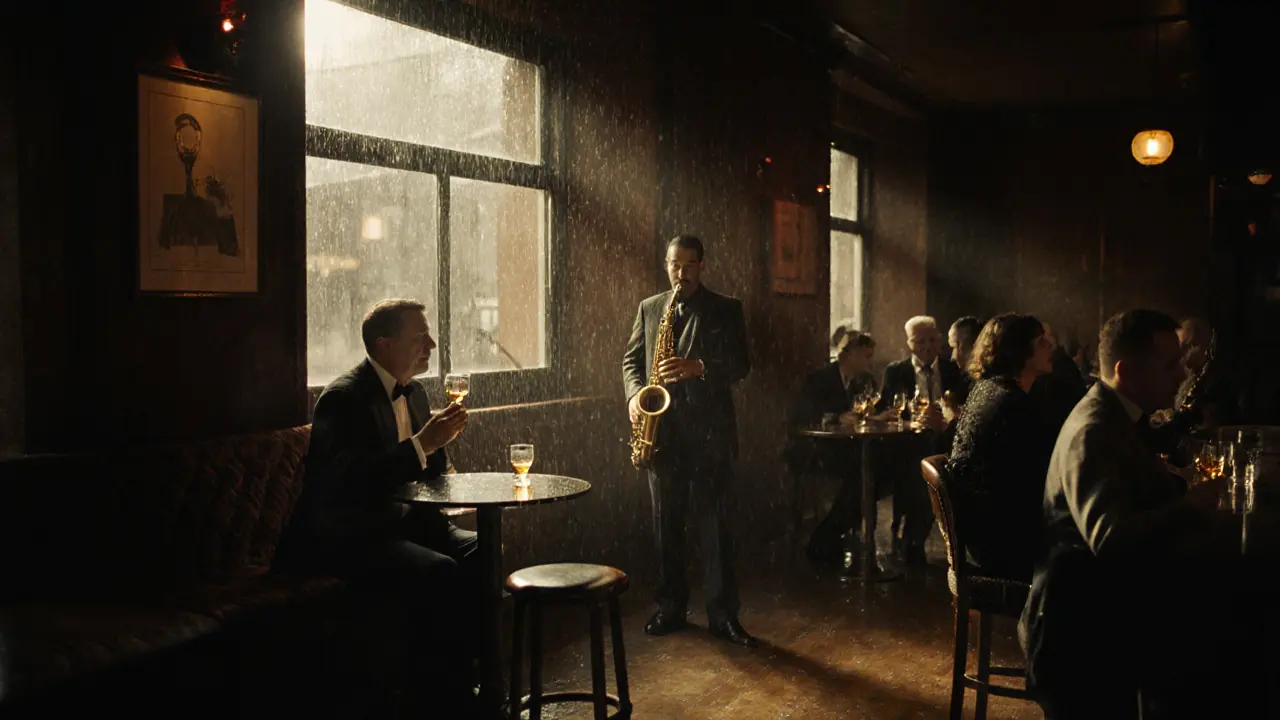
Safety Tips: Party Smart
Munich is one of the safest cities in Europe. But that doesn’t mean you can be careless.
- Never leave your drink unattended. Even in a quiet corner. It happens more than you think.
- Use the U-Bahn. It runs until 2 a.m. on weekdays and 3 a.m. on weekends. Taxis are expensive and slow.
- Don’t trust strangers offering “free shots.” It’s a scam. Always buy your own drinks.
- Keep your phone charged. Save the club’s address in your phone before you go.
- Know your limits. Munich’s beer is strong. And the music makes you lose track of time.
And if you’re ever unsure? Walk into a 24-hour Spätkauf (late-night convenience store). The staff are locals. They’ll point you to the nearest U-Bahn or tell you which club is actually worth going to.
Club Scene vs. Beer Halls: What’s the Real Difference?
| Feature | Clubs | Beer Halls |
|---|---|---|
| Music | Live DJs, techno, indie, jazz | Oktoberfest bands, folk music |
| Atmosphere | Dark, intimate, immersive | Bright, loud, crowded |
| Entry Fee | €0-€10 after 1 a.m. | Free, but you pay for food/drinks |
| Typical Crowd | Locals, artists, students, international visitors | Tourists, families, Oktoberfest groups |
| Open Hours | 10 p.m. - 4 a.m. (some until 6 a.m.) | 10 a.m. - 11 p.m. |
| Best For | Dancing, discovery, late-night vibes | Group photos, traditional food, quick drinks |
Beer halls are fun. But they’re not nightlife. They’re dining experiences with beer. Clubs? They’re where the city breathes after dark.
Frequently Asked Questions
What’s the best night to go clubbing in Munich?
Wednesday and Thursday are the sweet spot. Less crowded, better music, and cheaper drinks. Friday and Saturday are packed with tourists. If you want to feel like a local, skip the weekend.
Do I need to speak German to go to clubs in Munich?
No. Most club staff speak English, and the music doesn’t need translation. But learning a few phrases-like "Ein Bier, bitte" (One beer, please)-goes a long way. Locals appreciate the effort.
Are there age restrictions?
Yes. You must be 18 to enter clubs. Some venues, especially those serving alcohol after midnight, require ID. Bring your passport or EU ID card. No driver’s licenses are accepted.
Can I bring my own drinks?
Absolutely not. All clubs have strict no-outside-drinks policies. Even if you’re bringing a bottle of water, they’ll confiscate it. It’s for safety and licensing reasons.
Is there a dress code?
Yes, but it’s flexible. Smart casual means no shorts, flip-flops, or sports jerseys. A nice pair of jeans, a clean shirt, and closed shoes works for most places. For upscale spots like Blue Note, a jacket isn’t required but helps.
What’s the most underrated club in Munich?
Try Werkstatt on a Tuesday night. It’s a converted factory with a backyard garden, a vinyl-only DJ booth, and a bar that serves homemade gin. Most tourists don’t even know it exists. But the locals? They’re there every week.
So next time you’re in Munich, skip the beer hall selfies. Head out after 1 a.m. Find a door with no sign. Walk in. Let the music take over. That’s how you party like a pro.

